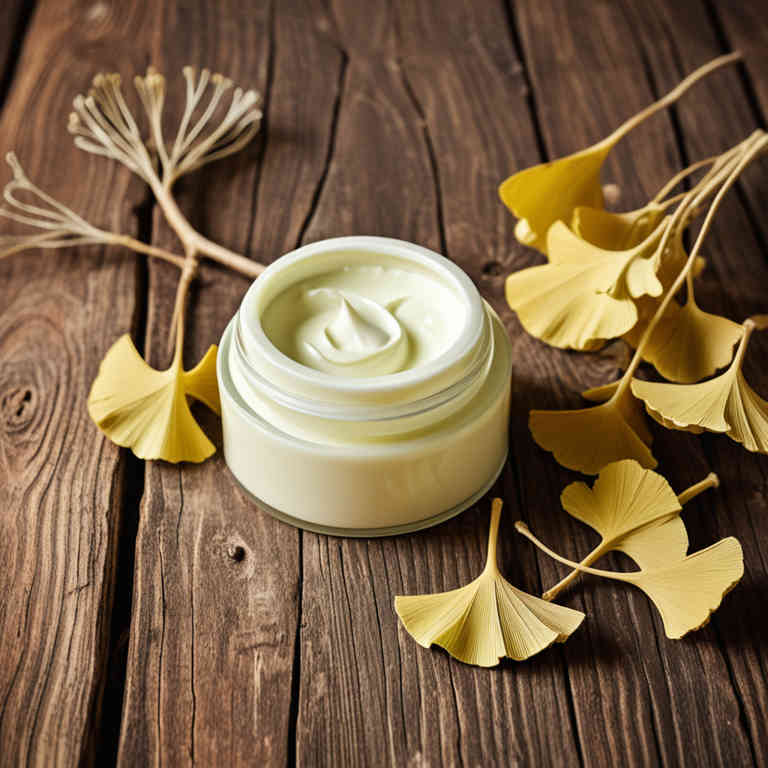Ginkgo biloba cream for medicinal use

Ginkgo biloba cream is a topical herbal preparation made from the leaves of the Ginkgo biloba tree, often combined with other natural ingredients.
It is used in herbalism to support circulation and may help alleviate symptoms of conditions like peripheral neuropathy or poor blood flow. The cream is typically applied directly to the skin to promote localized healing and reduce inflammation. It is valued for its antioxidant properties and is believed to enhance overall skin health.
This preparation is commonly used in alternative medicine for its potential to improve sensory function and reduce discomfort.
Uses
Ginkgo biloba cream has been used to enhance circulation and support cognitive function for centuries.
Historically, the leaves of the ginkgo tree were used in traditional Chinese medicine to treat memory loss and improve mental clarity. In modern times, the cream is formulated with extracts of ginkgo biloba to promote blood flow and may be applied topically for conditions like eczema or to reduce inflammation. It is also believed to help with symptoms of dementia and peripheral neuropathy when used as part of a holistic treatment plan.
Today, it remains a popular natural remedy for those seeking alternative approaches to health and wellness.
Benefits
Ginkgo biloba cream has health benefits such as improving circulation, enhancing cognitive function, and reducing inflammation.
It is often used topically to alleviate symptoms of eczema, psoriasis, and other skin conditions due to its anti-inflammatory properties. The active compounds in ginkgo biloba, such as flavonoids and terpenoids, help increase blood flow and protect cells from oxidative stress. This cream may also support wound healing and reduce the appearance of wrinkles by promoting skin regeneration.
It is a popular choice for those seeking natural remedies for both skin and cognitive health.
Constituents
Ginkgo biloba cream active constituents include flavonoids and terpene lactones, which are known for their antioxidant and anti-inflammatory properties.
These compounds help improve blood circulation, particularly in the extremities, by dilating blood vessels and reducing oxidative stress. The cream is often used topically to alleviate symptoms of poor circulation, such as leg cramps and swelling. It may also support cognitive function when applied to the scalp or used in combination with other treatments.
However, it is important to consult a healthcare professional before use, especially for individuals with sensitive skin or existing medical conditions.
Preparation
To make Ginkgo biloba cream, start by gathering fresh or dried Ginkgo biloba leaves and grind them into a fine powder.
Next, mix the powder with a carrier oil such as coconut or almond oil in a 1:10 ratio, and let the mixture steep for at least 48 hours to allow the active compounds to infuse into the oil. After straining the mixture to remove any solid particles, add a preservative like vitamin E oil to extend the shelf life. Finally, transfer the infused oil into a clean, airtight container and store it in a cool, dark place.
This cream can then be applied topically to help improve circulation and support skin health.
Side Effects
Ginkgo biloba cream may lead to skin irritation, redness, or allergic reactions in some individuals.
It is often used for its potential to improve circulation and cognitive function when applied topically. However, it can interact with certain medications, such as blood thinners, increasing the risk of bleeding. Side effects may also include gastrointestinal discomfort if ingested, though the cream is typically applied externally.
It is important to consult a healthcare professional before use, especially for those with known allergies or chronic health conditions.